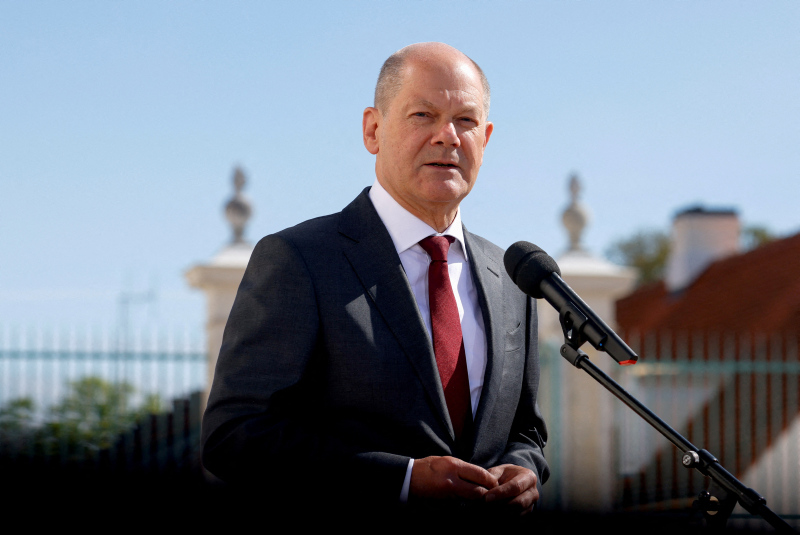Germany's conservative opposition leader traveled to Kyiv on Tuesday for meetings with Ukrainian officials including President Volodymyr Zelenskyy, as Chancellor Olaf Scholz made clear that he wouldn't be visiting Ukraine any time soon.
Scholz has traded barbs with Ukrainian officials in recent weeks because of Kyiv's refusal to invite Germany's head of state, President Frank-Walter Steinmeier, whom Ukraine accuses of cozying up to Russia during his time as foreign minister.
"It can't work that a country that provides so much military aid, so much financial aid ... you then say that the president can't come," Scholz told public broadcaster ZDF late Monday.
 Ukraine's ambassador in Berlin, Andrij Melnyk, responded Tuesday by calling Scholz's refusal to visit "not very statesmanlike."
Ukraine's ambassador in Berlin, Andrij Melnyk, responded Tuesday by calling Scholz's refusal to visit "not very statesmanlike."
"This is about the most brutal war of extermination since the Nazi invasion of Ukraine, it's not kindergarten," he said.
Speaking to reporters against a backdrop of shelled buildings, Merz expressed his "full admiration" to the Ukrainian military for having halted the Russian advance at Irpin, and pledged to help the town rebuild.
German daily Bild reported that Merz later met for an hour with Zelenskyy at his presidential office. Merz' visit to Kyiv comes days before two German state elections in which his Christian Democratic Union is hoping to retain power.
The Union bloc joined Germany's three governing parties in a non-binding vote backing the delivery of heavy weapons to Ukraine last week. German media report that the government is planning to approve further armaments for Ukraine soon, including large self-propelled howitzers.
Critics, particularly on the far-left and right, have argued against providing weapons to Ukraine, saying Germany risks being drawn into a conflict with Russia.
German authorities say they have recorded the arrival of some 400,000 refugees from Ukraine since the start of the war.